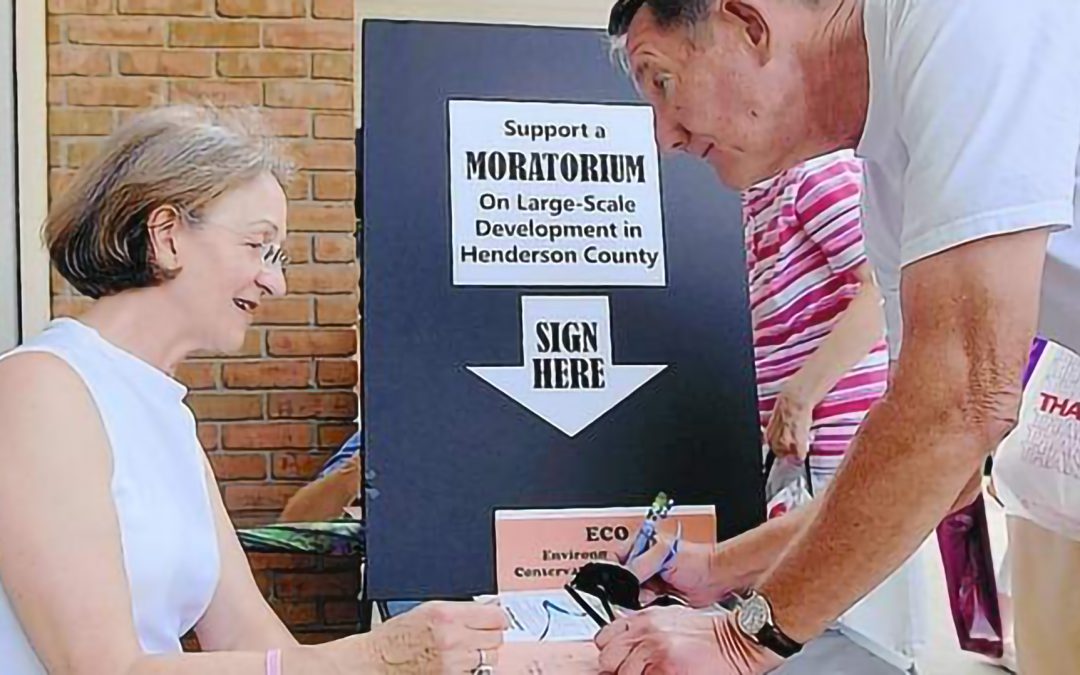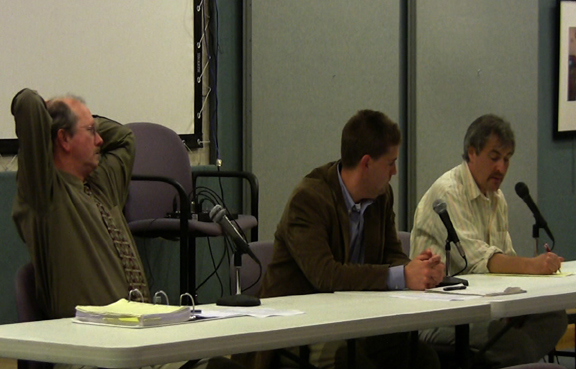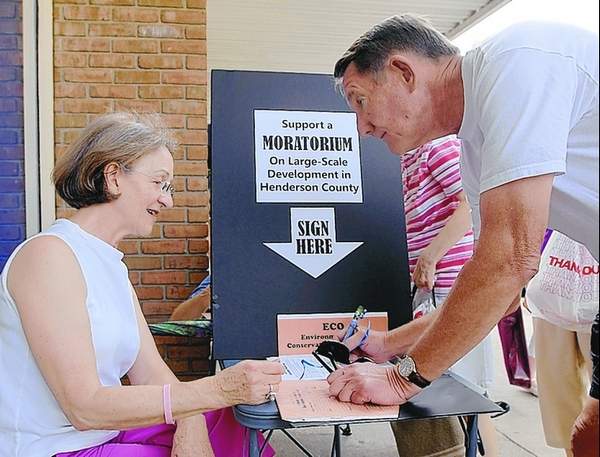ECO Blazing the Path to Environmental Change in Hendersonville
By David Weintraub, former executive director of ECO
The Year Was 2007. The Hendersonville Times-News had just completed an explosive series on “The Building Boom” alerting the public to the major changes coming if developers continued to call the shots. According to the series editor then Managing Editor, Bill Moss, the county was slated to add hundreds of new subdivisions constituting over 3,000 new homes which would eventually put the rural character of the county in the dustbin of history.
Most folks in Henderson County did not support the loss of the county’s natural heritage, quality of life, and historical roots but most folks weren’t considered stakeholders by county commissioners. ECO, the Environmental and Conservation Organization wanted to change that and they realized the first step was for citizens to build their voice loud enough to be heard above the din of trackhoes, skidders, and wood chippers that were disassembling the native forest.
The first step was organizing residents to pack county commission hearings and Hendersonville City Council meetings to make it loud and clear to public officials that the county’s remaining open space was not a pie to be divvied up by Florida developers. The public needed a voice and it was time for it to be heard.
The county had a freshly minted Comprehensive Plan which had a pretty good Growth Management Plan declaring that 1) growth should be directed where infrastructure like water and sewer already existed, that 2) public utilities should not be brought into rural communities because it would become a lightning rod for development that would destroy the rural nature of those places and 3) farmland should be protected. ECO thought all of those elements of the plan were a good thing. The problem was that when development decisions were actually being made, it wasn’t the Comp Plan that was pulled out and applied. Instead, the Planning Board, heavily stacked with members of Beverly-Hanks, Keller Williams, Coldwell Banker, and the rest of the real estate community called the shots with little opposition from commissioners.
But commissioners under pressure for years from the League of Women Voters, ECO, and other groups, finally agreed to put a development code into place. Even they realized it no longer made sense to continue the “anything goes” approach to growth which was rapidly turning our beautiful county into Any Town, USA. When the development community got wind of the plan to create land rules, like blood in shark-infested waters, a feeding frenzy took off, leading to hundreds of developers applying for “vested rights” claiming that they already had development plans and wanted their development to follow the old “rules” rather than be forced to follow more restrictive guidelines.
As a result, the commissioners were forced into the position of holding weekly vested rights hearing while they were planning to develop new rules. ECO thought that put policymakers into a schizophrenic position, so we floated the idea to commissioners to pass a temporary building moratorium so that they could focus on the future without being saddled with the development frenzy pounding on their doors.
ECO began a series of town hall meetings in many communities targeted for increased development. We launched a petition drive to demand that commissioners pass the moratorium and we packed commission hearings. The meetings were flooded with public comments from natives to newcomers, putting pressure on policymakers to listen to what the rest of the community was demanding. The culmination of this effort was when ECO delivered over 4000 signatures to the commissioners on the eve of a critical Board of Commissioners meeting that would decide the fate of Crab Creek, a very rural community that would have been decimated had the plan to build a massive country club development called Glen and Highlands gone forward. In the first of many such decisions, the commissioners found their backbone (with ECO’s guidance as to their environmental chiropractor) and denied the development plans.
Over time, many harmful developments were deterred through this process. A Land Development Code was passed through citizens’ input and then strengthened to require that large developments set aside open space. It also stopped the practice of bringing waterlines to large developments and more. Additionally, a local erosion control ordinance was passed.
These all serve to be guideposts for current efforts to create a new Comprehensive Plan that can better meet the challenges of today. One of the greatest lessons that were learned in these battles of the past is that it only takes a small number of people to make a substantial difference. But also, planning rules today can easily be dismantled tomorrow if citizens don’t continue to be vigilant. They’re not making a new land. We have to protect what we have for ourselves, our kids, and the other critters who call our community home.




